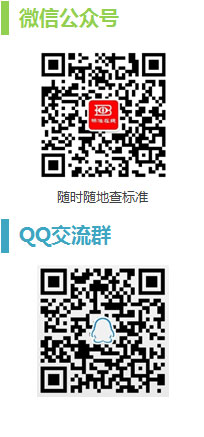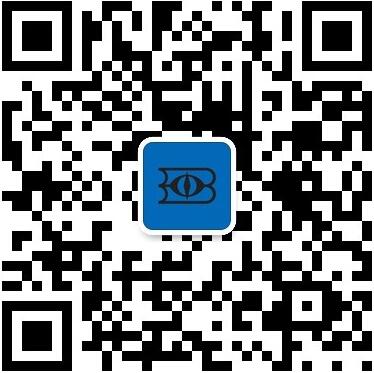The Standard consists of four parts: Part 1: Overview and Basic Principles; Part 2: Entropy Sources; Part 3: Deterministic Random Bit Generator Mechanisms; Part 4: Random Bit Generator Construction.Part 3 includes: A model for a deterministic random bit generator (DRBG), Requirements for DRBG mechanisms, Specifications for DRBG mechanisms that are based on hash functions or block ciphers, or are based on number theoretic problems, Implementation issues, and Assurance considerations.
定价: 546元 / 折扣价: 465 元 加购物车
This standard establishes paper specifications for the MICR documents that are used in the US Payments System. While checks, substitute checks (IRDs) and deposit tickets are the primary documents considered in these specifications, users of MICR/OCR E-13B font readers will be well served by applying these specifications to internal documents, when intended for use in reader/sorters. This standard gives specifications to those attributes most important and most common both to raw base stock and to finished printed products of MICR documents. When available, methodology for measurements of the various paper attributes shall conform to those of the Technical Association of Pulp and Paper Industry (TAPPI). The specifications state what are considered to be the appropriate requirements for paper documents intended for external processing from the viewpoint of the end user, namely the institution performing post encoding in proof-of-deposit applications and those that operate reader/sorter equipment for in-clearing and transit clearing applications. Nonetheless, these same specifications are also considered appropriate requirements for paper before any print process is applied to base stock. Base stock, either from rolls or from sheets, must meet the specifications as well as fully processed, end user documents. Paper specifications from the standpoint of fraud prevention and security are not given within this standard. The various features that paper can have that hinder fraud and aid authentication of original document are addressed in ANSI X9.100-170 Check Fraud Deterrent Icon standard and in X9/TR 8 Check Security. Although reference may be made within this standard to various commonly used paper-based security features, setting specifications for paper-based security features are excluded from the scope of this standard. There are additional paper characteristics important to document printers and end users in terms of printability and mechanical performance in their individual operations that are related to document performance. Paper characteristics such as moisture content, filler content, brightness, pH, coefficient of friction, ink absorption, etc., are quite variable within the industry and are not covered in this standard because many of them are not measurable by the end user due to exposure to other conditions during the manufacturing processes.
Defines specific TIFF fields and parameters for check image exchange and the allowable values for those parameters. This standard will only address the use of G4 bilevel image (black/white) compressions within the TIFF 6.0 structure. A least common denominator approach was used to identify the fields that everyone should read and the required or allowable values for these fields that everyone will be expected to support. To accomplish interoperability, some of the fields and values are more restrictive compared to what is being generated in todays environment. In addition, this standard clarified areas that have been interpreted in different ways.
Part 1 of this standard specifies the shape, dimensions, magnetic signal level, and tolerances for the E-13B characters which include ten numerals and four special symbols printed in magnetic ink and used for the purpose of character recognition. It describes the various known types of printing defects and other printing considerations, together with the tolerances permitted. Part 2 provides informative conformance testing requirements for the Part 1 specifications. Part 3 specifies the requirements for secondary reference documents and the test equipment for calibrating and maintaining their signal level.
Wireless technologies have rapidly emerged as significant components of networks. The ease and speed of deployment, as well as inexpensive transmission rates, makes them ideal for deploying new systems. Whereas installations used to be delayed several months because of complicated landline connections, a wireless deployment can happen the same day an ATM or POS terminal is ordered. Greater wireless coverage, greater reliability, higher transfer speeds, and improved equipment quality has only increased the likelihood that ATMs with wireless are a preferred option. Data classification and risk assessments still need to be performed, however, to determine asset value and the risks introduced by transmission over wireless networks. The question is still how data is being secured. Numerous control methods must be used to protect sensitive data on wireless networks such as encrypting communication prior to transmission and decrypting it afterwards.
This part of ANS X9.24 establishes requirements and guidelines for the secure management and application-level interoperability of such automated keying operations. This part of this standard addresses symmetric keys managed with asymmetric keys, and asymmetric keys managed with symmetric keys (as in the storage of private keys encrypted with a symmetric master key for storage as cryptograms on a local database)
The intent of this standard is to establish the specific location for the convenience amount (the value of the check expressed in numbers) and to standardize the background design for essential data fields (areas of interest), including the convenience amount rectangle and the MICR clear area.
Since the enactment of Check 21, there has been unprecedented adoption of image exchange. This standard establishes the basis for U.S. check image exchange between financial institutions; all financial values in this standard are assumed to represent U.S. Dollars. This standard establishes requirements and limitations that are compatible with current industry practice. It maintains flexibility in order to accommodate the needs of different institutions and exchange networks. Users of this standard should be aware that most financial exchanges utilize a 鬰ompanion document?that defines the specific requirements and implementation rules for exchange within a particular network or institution agreement. The companion document should reference the specific edition of this standard that applies with the specific version of the companion document in use. Generally, US check exchange utilizes the Universal Companion Document (UCD) that can be referenced at the CheckImage Collaborative website, CheckImage Central at www.checkimagecentral.org. This standard, including the normative annexes, establishes the file sequences, record types, and field formats to be used for the electronic exchange of check MICR line, associated check processing data and check images in the form of cash letters. This standard does not address operational, implementation, or settlement needs. These requirements may include, but are not limited to, a choice of: data and image compression, encryption, and transmission specifications and data representation. The informative annexes attached to this standard provide information that may prove useful to those planning to implement the standard.
Defines a method for digital signature generation and verification for the protection of messages and data using the Digital Signature Algorithm (DSA). This standard is used in conjunction with the hash function, as defined in American National Standard for Public Key Cryptography - Part 2: The Secure Hash Algorithm (SHA-1), BSR X9.30.2. In addition, this standard provides the criteria for the generation of public and private keys that are required by the algorithm and the procedural controls required for the secure use of the algorithm. Specific sections include definitions and common abbreviations, application, the DSA, Generation of Primes for the DSA, Random Number Generation for the DSA.
 我的标准
我的标准 购物车
购物车 400-168-0010
400-168-0010











 对不起,暂未有相关搜索结果!
对不起,暂未有相关搜索结果!













